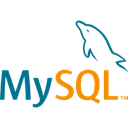The Best VoltDB Alternatives for High-Performance Data Needs
VoltDB is a formidable NewSQL database system, engineered for lightning-fast operations on modern, scale-out architectures. It excels in real-time applications, sensor data streams, micro-transactions, and low-latency trading, demanding millions of operations per second with flawless fault tolerance and real-time visibility. However, specific project requirements, budget constraints, or a desire for different architectural approaches might lead you to seek a robust VoltDB alternative. This article explores some of the top contenders that can meet your high-performance data needs.
Top VoltDB Alternatives
While VoltDB offers unparalleled speed and scalability for niche use cases, the broader database landscape provides a wealth of options. Here, we delve into alternatives that offer varying strengths, from relational powerhouses to flexible NoSQL solutions, all capable of handling demanding data workloads.

SQLite
SQLite is a self-contained, serverless, zero-configuration, transactional SQL database engine. As a widely deployed SQL database, it's a fantastic VoltDB alternative for embedded systems, mobile applications (Android, iPhone), and lightweight web projects where a full-fledged database server isn't necessary. It's free and open-source, offering cross-platform compatibility (Mac, Windows, Linux) and features like in-memory database capabilities and embeddability, making it highly flexible.

PostgreSQL
PostgreSQL is a powerful, open-source object-relational database system known for its robust features, extensibility, and strong adherence to SQL standards. Available for Mac, Windows, Linux, and BSD, PostgreSQL is a compelling VoltDB alternative for applications requiring a mature, reliable relational database with extensive data integrity features and a vibrant community. Its flexibility allows it to handle a wide range of data types and complex queries.

MySQL Community Edition
MySQL Community Edition is a widely adopted open-source relational database management system, leveraging InnoDB technology for transactional support. As a free and open-source solution, available across Mac, Windows, Linux, and BSD, it stands as a strong VoltDB alternative for web applications, e-commerce platforms, and general-purpose database needs. Its ease of use, extensive documentation, and large community make it a popular choice.

MongoDB
MongoDB is a leading document database, offering the scalability and flexibility of a NoSQL database with powerful querying and indexing capabilities. For projects that prioritize agile development, schema flexibility, and horizontal scalability, MongoDB serves as an excellent VoltDB alternative. It's free and open-source, supported on Mac, Windows, Linux, Web, and BSD, making it ideal for handling large volumes of unstructured or semi-structured data.

MariaDB
MariaDB is an open-source relational database management system, developed as a community-driven fork of MySQL. It maintains high compatibility with MySQL while offering enhanced performance, new features, and a stronger commitment to open-source principles. Available for free on Windows, Linux, and BSD, MariaDB is a highly capable VoltDB alternative for those seeking a robust, scalable, and community-supported relational database.

Redis
Redis, a REmote DIctionary Server, is an open-source, networked, in-memory, key-value data store known for its exceptional speed. Often referred to as a data structure server, it supports various data structures like strings, hashes, lists, sets, and more. For caching, real-time analytics, and session management where extreme low-latency access is paramount, Redis is an excellent VoltDB alternative. It's free and open-source, available across Mac, Windows, Linux, and BSD, and can be self-hosted.

Microsoft SQL Server
Microsoft SQL Server is a comprehensive relational database management system that delivers on Microsoft’s Data Platform vision. It helps organizations manage structured, semi-structured, and unstructured data effectively. While a freemium offering, with versions available for Windows and Linux, SQL Server can serve as a robust VoltDB alternative for enterprises already invested in the Microsoft ecosystem or those requiring advanced business intelligence, reporting, and data warehousing capabilities.

CouchDB
Apache CouchDB is a distributed, fault-tolerant, and schema-free document-oriented database, accessible via a RESTful HTTP/JSON API. It includes incremental map/reduce for flexible data querying. As a free and open-source NoSQL database available on Mac, Windows, Linux, Android, and BSD, CouchDB is an intriguing VoltDB alternative for applications that benefit from its offline-first capabilities, seamless synchronization, and flexible document model, especially in distributed environments.

RethinkDB
RethinkDB is a distributed open-source database designed to push JSON to your applications in real-time. It addresses the overhead of polling for data, making applications faster and more scalable. Available for free on Mac, Windows, Linux, and BSD, RethinkDB is a compelling VoltDB alternative for building real-time web applications, chat systems, and collaborative tools where instant data updates are critical.

Firebird
Firebird is a relational database offering many ANSI SQL-92 features, running efficiently on Linux, Windows, and various Unix platforms. It's known for its excellent concurrency, robust performance, and minimal administration requirements. As a free and open-source database, Firebird provides a solid VoltDB alternative for standalone and embedded applications, or for server-side solutions where a lightweight yet powerful relational database is preferred.
Choosing the right database solution is a critical decision, heavily dependent on your specific application needs, scalability requirements, and team expertise. While VoltDB excels in its niche, these alternatives offer diverse capabilities, from traditional relational models to flexible NoSQL approaches. We encourage you to explore each option further to determine the best fit for your unique data challenges.